Improve reading comprehension Reading Non-Fiction Worksheets for Ages 6-9
5 filtered results
-
From - To
Enhance your child's reading skills with our "Improve Reading Comprehension: Reading Non-Fiction Worksheets" designed for ages 6-9. These engaging worksheets feature a variety of fascinating non-fiction texts aimed at improving comprehension abilities. Each activity focuses on key concepts such as identifying main ideas, details, and critical thinking. By working through these resources, young learners can strengthen their understanding of complex texts while fostering a love for learning. Perfect for use at home or in the classroom, our worksheets provide invaluable practice that supports both academic success and a confident, inquisitive mindset. Dive into the world of non-fiction with us today!
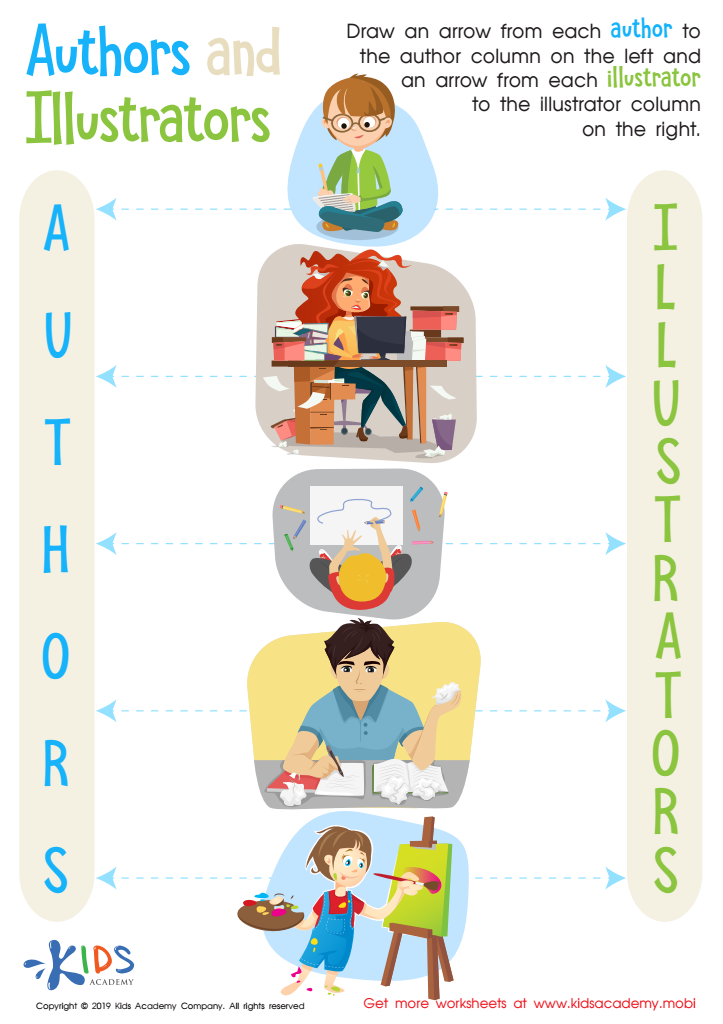

Authors and Illustrators Worksheet
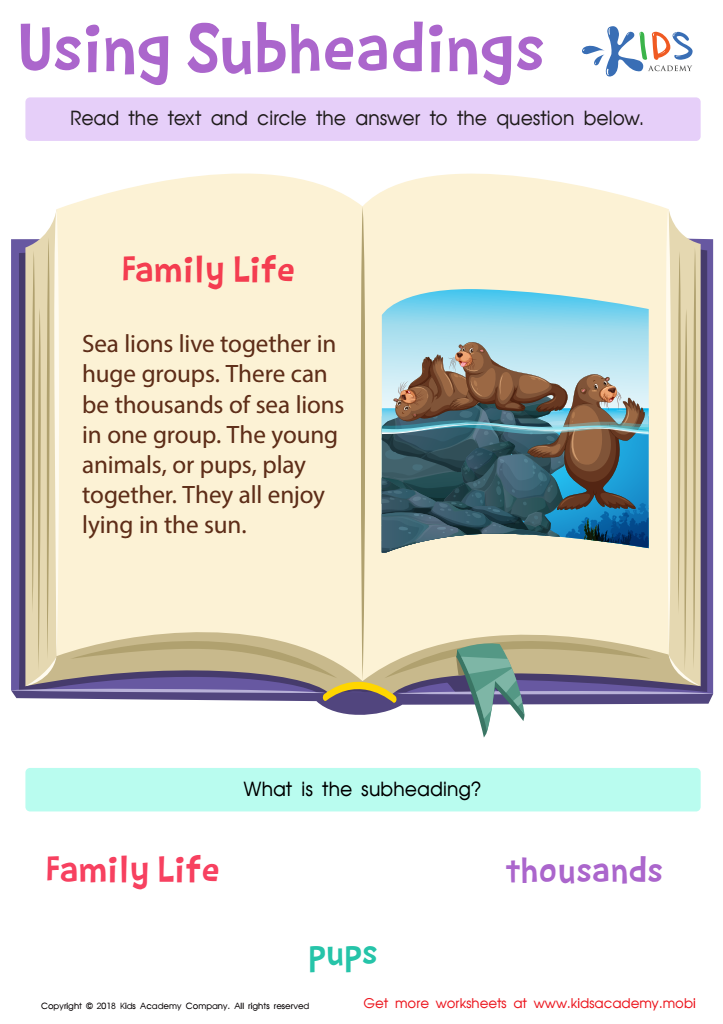

Using Subheadings Worksheet
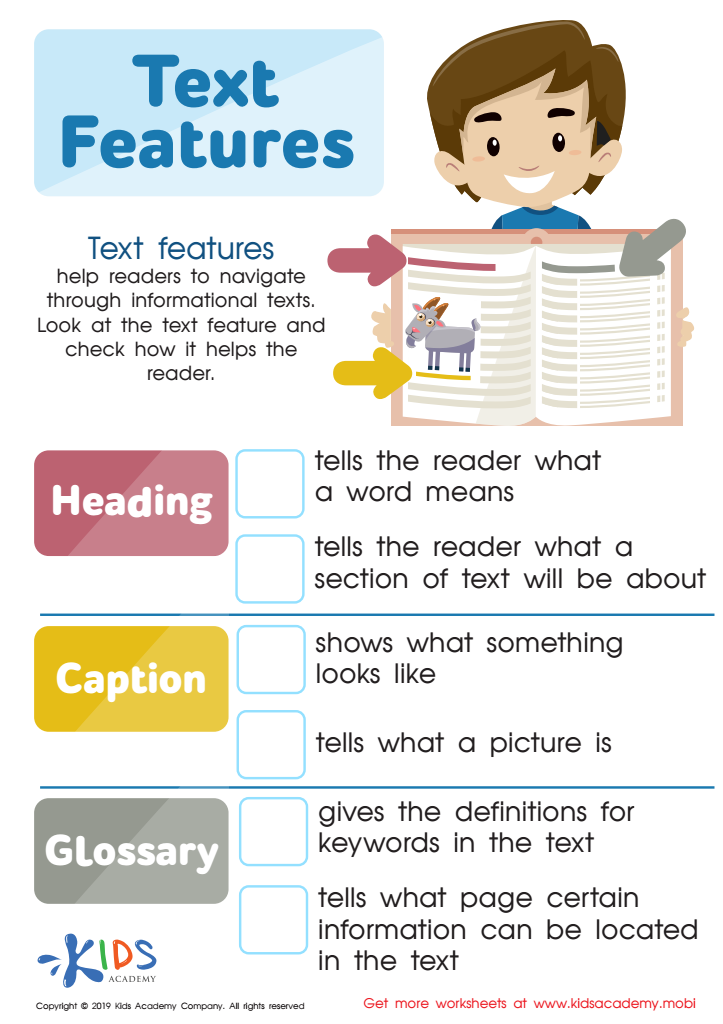

Text Features Worksheet
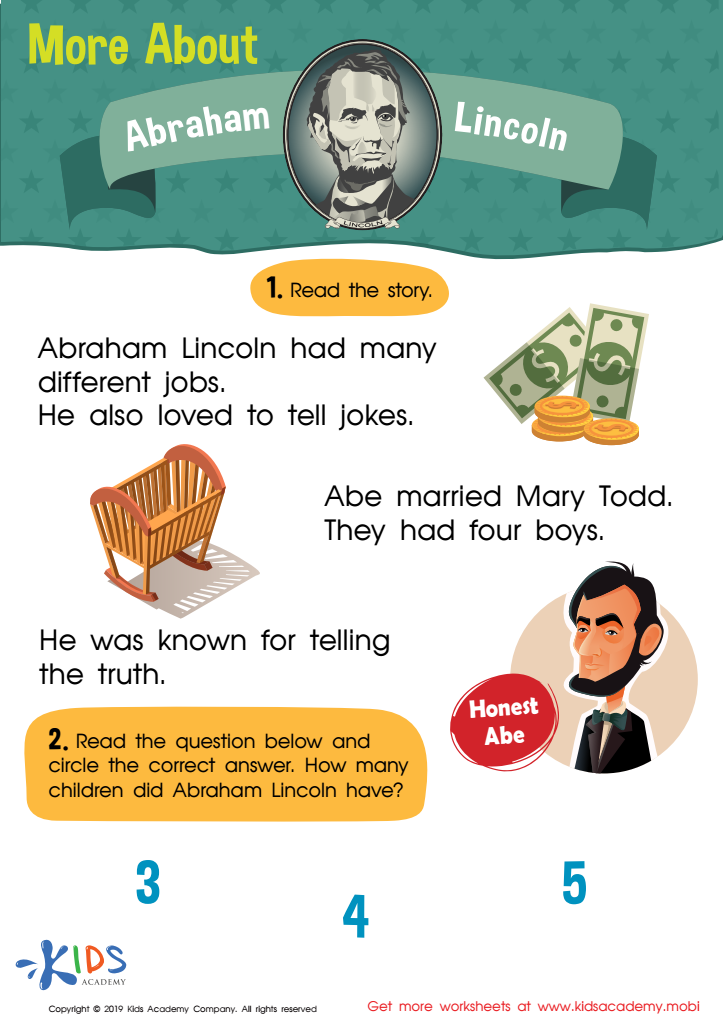

More About Abraham Lincoln Worksheet
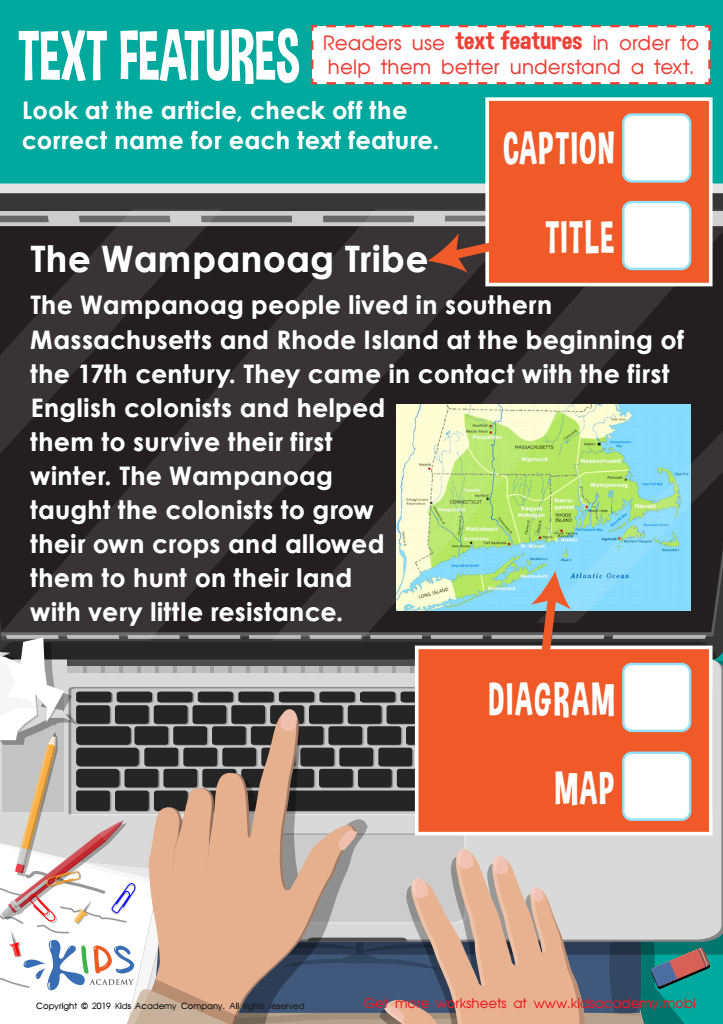

Text Features Worksheet
Improving reading comprehension in non-fiction for ages 6-9 is crucial because it sets the foundation for lifelong learning and academic success. At this age, children are developing critical cognitive skills, and being able to comprehend non-fiction texts enhances their understanding of the world around them. Non-fiction reading opens doors to knowledge about science, history, culture, and more, fostering curiosity and a love for learning.
Strong reading comprehension skills in non-fiction also boost overall literacy. It helps children grasp complex information, identify main ideas, and understand concepts, which are essential for academic progression. These skills are not only important for subjects like science and social studies but also contribute to improved performance in standardized testing and future schooling.
Moreover, engaging with non-fiction teaches children how to think critically and analyze information, which are vital life skills. It encourages them to ask questions, seek evidence, and understand different perspectives, preparing them to become informed, reflective individuals.
Parents and teachers should prioritize non-fiction reading to build a balanced education, ensuring children grow up well-rounded, knowledgeable, and capable of making informed decisions. This early focus sets the stage for academic success and helps children adapt to an increasingly information-rich world.
 Assign to My Students
Assign to My Students
















